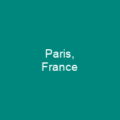France: A Country of Rich History and Cultural Heritage
Imagine stepping into a time machine that transports you to Western Europe’s most enchanting destination—France. With its storied history, breathtaking landscapes, and vibrant culture, France is not just a country; it’s an experience. From the bustling streets of Paris to the serene vineyards of Bordeaux, every corner of this nation whispers tales of yesteryears and beckons you with modern allure.
The Historical Tapestry
France’s history stretches back to the Iron Age when Celtic tribes known as Gauls roamed the land. But it was the Romans who truly shaped France, annexing it in 51 BC. The Franks, a Germanic tribe, later formed the kingdom of Francia, which became the heartland of the Carolingian Empire. Through conflicts like the Hundred Years’ War and the French Wars of Religion, France emerged as a global power under Louis XIV.
But it was the French Revolution in 1789 that truly shook the foundations of the Ancien Régime, producing the Declaration of the Rights of Man. Napoleon Bonaparte’s empire collapsed in 1870, leading to the establishment of the Third Republic and subsequent periods of relative decline and recovery. France’s history is a rollercoaster of triumphs and trials, each leaving an indelible mark on its culture.
Modern Times
The current Fifth Republic was formed in 1958, following a short-lived Fourth Republic. Today, France remains a global centre of art, science, and philosophy, hosting numerous UNESCO World Heritage Sites and being the world’s leading tourist destination. With its rich history and modernity, France is a country that continues to captivate the world.
Geography and Culture
France, officially the French Republic, spans an area of 632,702 km², making it the largest among EU members. Its diverse geology and topography include prominent mountain ranges like the Alps, Pyrenees, and Jura mountains, with Mont Blanc being the highest point in Western Europe.
The country’s coastline offers a mix of landscapes, from coastal cliffs to sandy plains, while its extensive river system flows into the Mediterranean Sea. France is also home to nine national parks, 46 natural parks, and 54 regional nature parks (PNRs), ensuring that its natural beauty remains preserved for future generations.
Environmental Initiatives
France was one of the first countries to create an environment ministry in 1971. The country aims to reduce carbon emissions by at least 20% of 1990 levels by 2020, reflecting its commitment to environmental sustainability.
Politics and Economy
France is a representative democracy with two leaders: the president and prime minister. The president is elected directly for five years, while the prime minister is appointed by the President. The legislature consists of the National Assembly and Senate, determining rules and principles concerning law, political amnesty, and fiscal policy.
The French economy is highly diversified, with services accounting for two-thirds of both the workforce and GDP. It consistently ranks among the top 10 largest economies globally and is considered a great power. The Paris Region has the highest concentration of multinational firms in mainland Europe, driving economic growth and innovation.
Immigration and Demographics
France’s population is multicultural due to large-scale immigration over the last century and a half. With an estimated 20 million people, France remains the 20th most populous country in the world. However, its fertility rate has been steadily declining since 2011, standing at 1.79 per woman in 2023.
The largest minority ancestry groups include Italian (5 million), Northwest African (3-6 million), Sub-Saharan African (2.5 million), Armenian (500,000), Turkish (200,000), and Spanish, Portuguese, Polish, and Greek minorities. The country’s population is expected to continue growing until 2044, driven by immigration and an aging population.
Art and Literature
French art has been influenced by Flemish and Italian styles during the Renaissance. The country developed the rococo style and later Impressionism and Symbolism. Famous French artists include Camille Pissarro, Claude Monet, Edgar Degas, and Henri Matisse. Other foreign artists like Vincent van Gogh, Marc Chagall, Amedeo Modigliani, and Wassily Kandinsky also settled in or near Paris.
French literature dates back to the Middle Ages with various languages and dialects used by authors like Chrétien de Troyes, Christine de Pizan, and Duke William IX of Aquitaine. The 18th and 19th centuries saw significant contributions from writers like Victor Hugo, Alexandre Dumas, Jules Verne, Émile Zola, Honoré de Balzac, Guy de Maupassant, Théophile Gautier, and Stendhal.
Modern Architecture
French architecture has evolved through various styles. From the Gothic cathedrals of Île-de-France to the neoclassical buildings favored during the Revolution, modern architecture in France combines old styles with new innovations. The Louvre Pyramid is an example of contemporary architecture added to an older building.
Conclusion
France’s rich history, diverse culture, and vibrant arts scene make it a country that continues to captivate the world. From its storied past to its modern achievements, France remains a beacon of innovation and cultural richness. As you explore this enchanting land, remember that every corner holds a story waiting to be discovered.

You want to know more about France?
This page is based on the article France published in Wikipedia (retrieved on March 7, 2025) and was automatically summarized using artificial intelligence.






